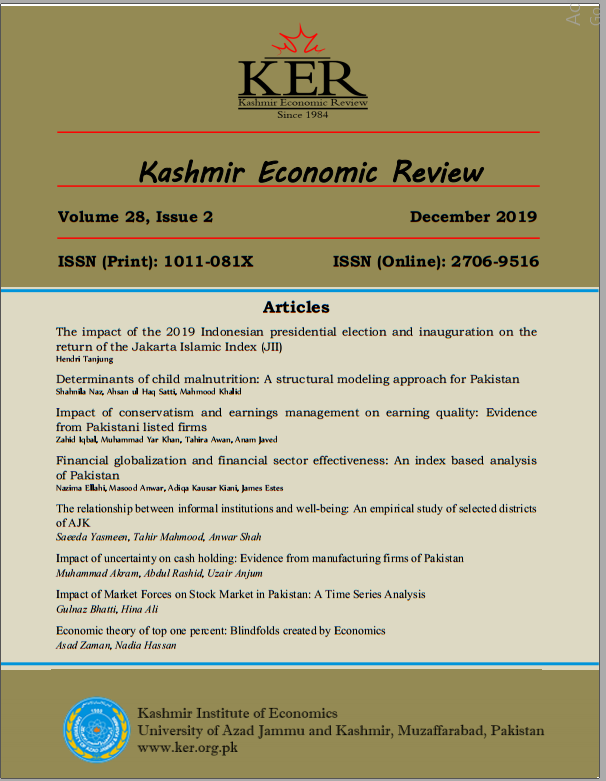Impact of Market Forces on Stock Market in Pakistan: A Time Series Analysis
Main Article Content
Abstract
The key objective of the study is to investigate the impact of
macroeconomic variables on the stock market in Pakistan. A
stock market is a place or organization where securities
instruments are traded among investors. Every type of risk
earning assets such as bonds, equity, shares, securities that are
traded is included in the financial market. The selected
variables in this study were the Gross Domestic Product
(GDP), Inflation, Interest Rate, Exchange rate, Cost of Capital,
Investment, Money Supply, and Consumer Price Index. The
GDP is taken as dependent variables and the impact of all
remaining independent variables on GDP. The study used the
time series data that covered the period from 1975-2016. This
study implies the Augmented Dickey-Fuller (ADF) test to
check the stationary of data, and the Auto Regressive
Distributive Lag Model for the Specification of data. To
analyze the long run and short-run association among variables
the coefficients of the variables are measured. This study
concluded that inflation, interest rate, investment, money
supply harm the gross domestic product. The impact of the
Exchange rate, Cost of capital, and the Consumer Price Index is
positive. The cost of capital is the amount of money that is paid
by using loans, funds, and instruments.
Article Details

This work is licensed under a Creative Commons Attribution-ShareAlike 4.0 International License.

